-
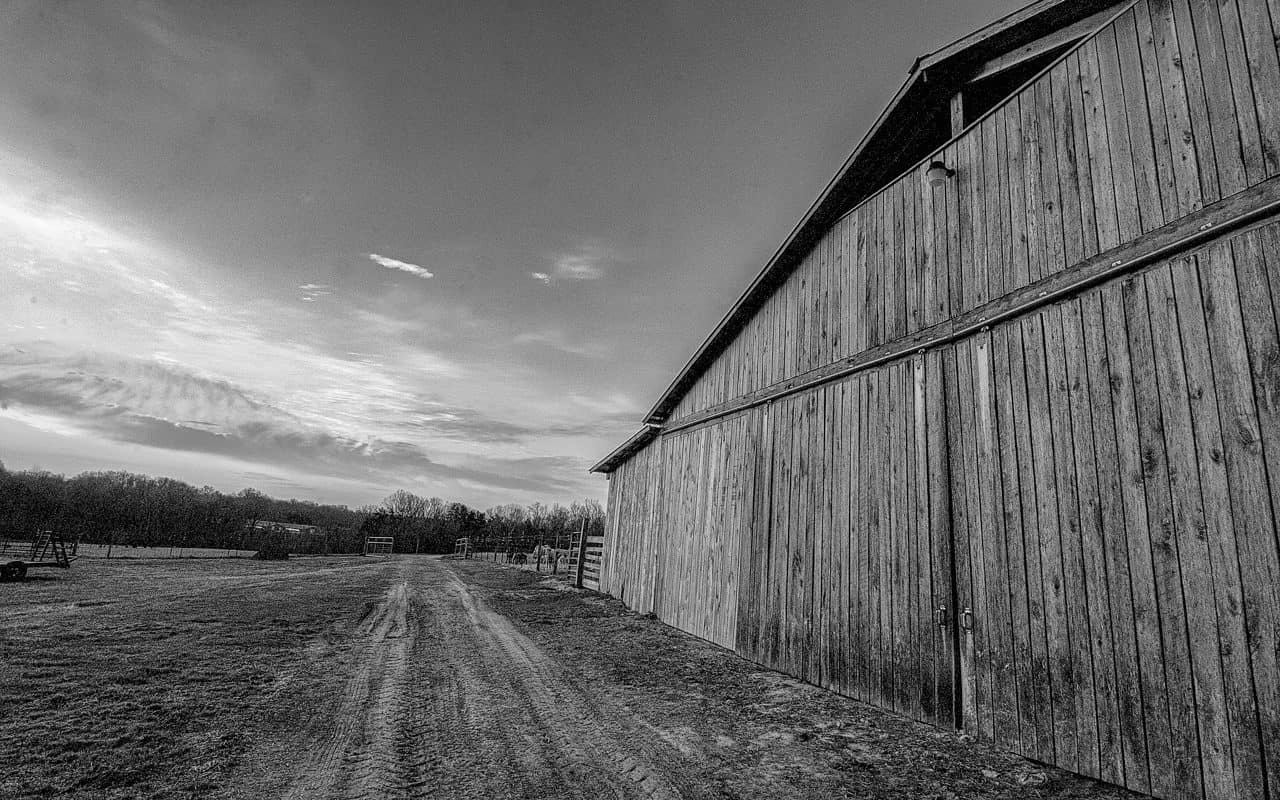
Soon after purchasing this farm in the early '90's, they realized the crown jewel that they had acquired. They knew that they had a responsibility to preserve this "goodness" for future generations and they did so by granting a conservation easement to the local land trust.
Ron readily shares his vision with farm visitors, "there will never be a box store here - not on our farm."
-
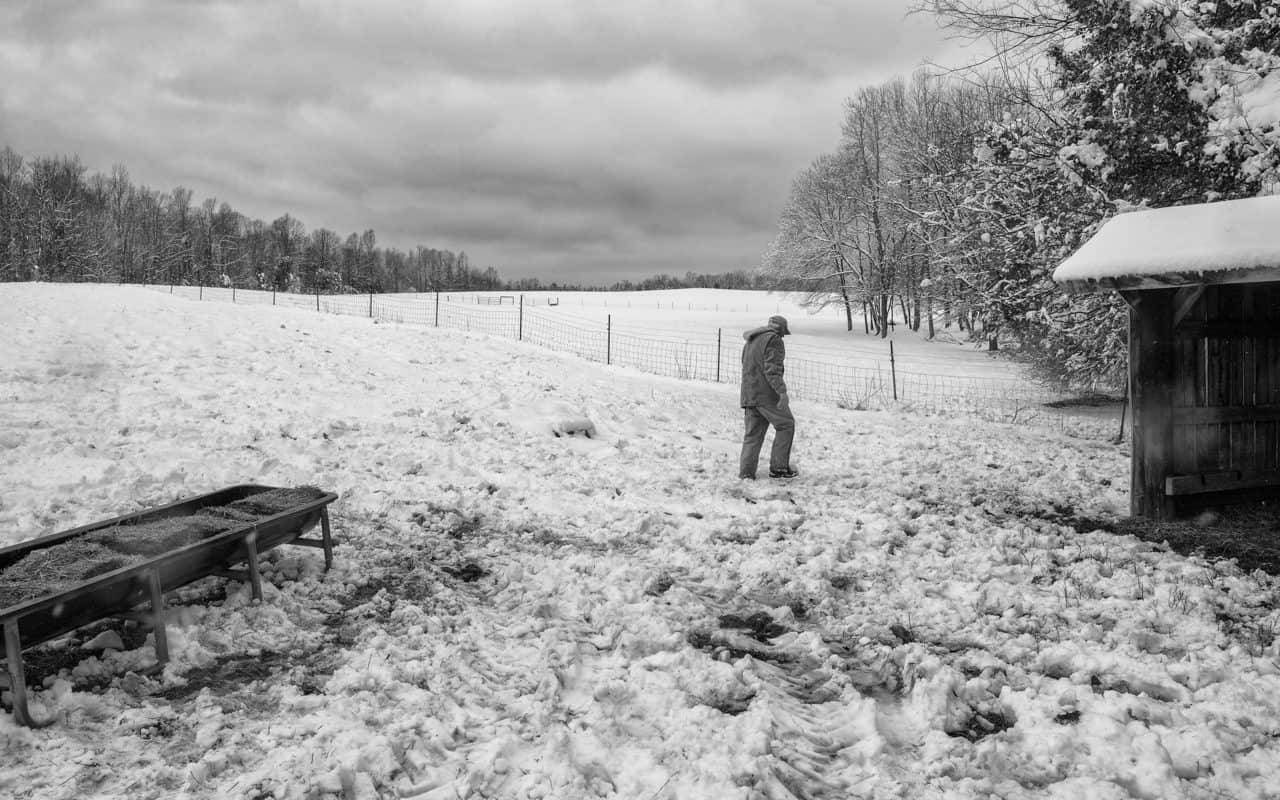
Shepherding is a year round occupation but begins in earnest during the winter months.
-
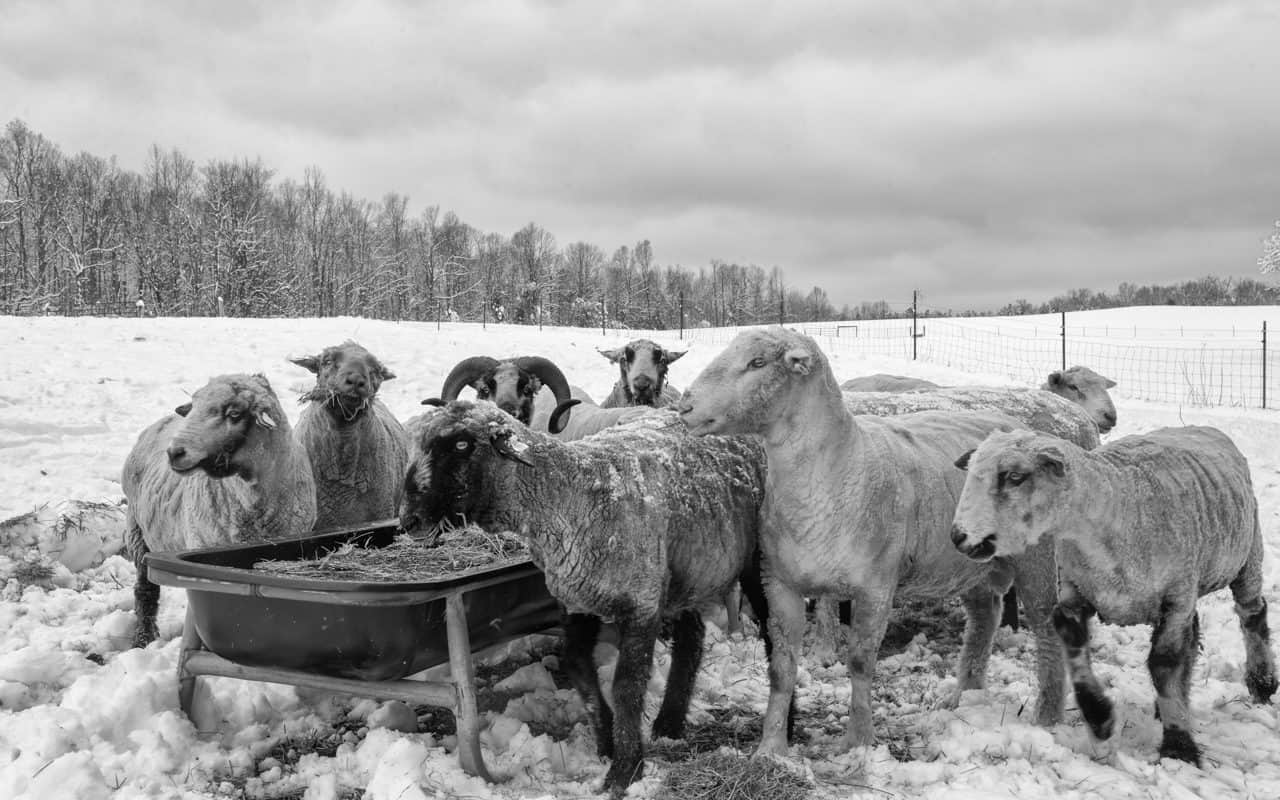
The boys (rams) are put in top shape to do the one thing that they are there for - to breed.
-
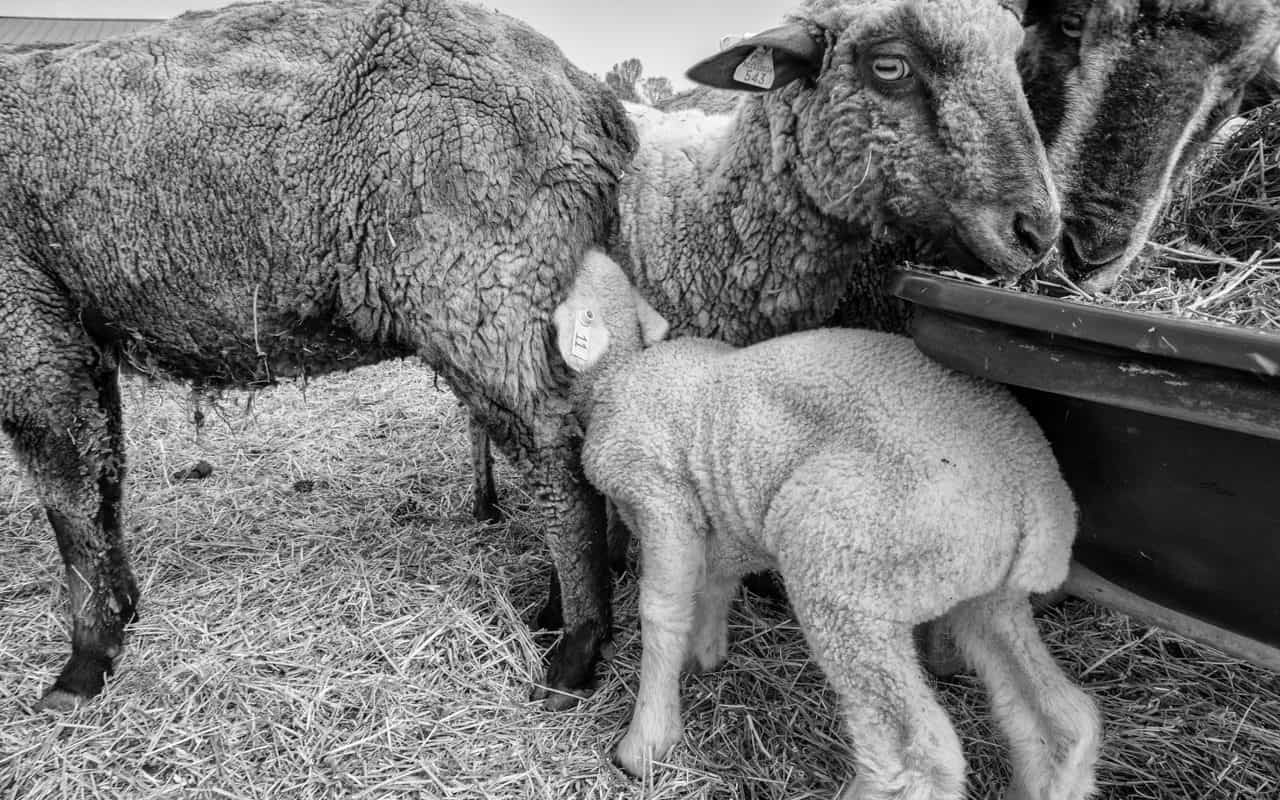
And as if by magic, lambs begin to appear in 147 to 152 days.
-
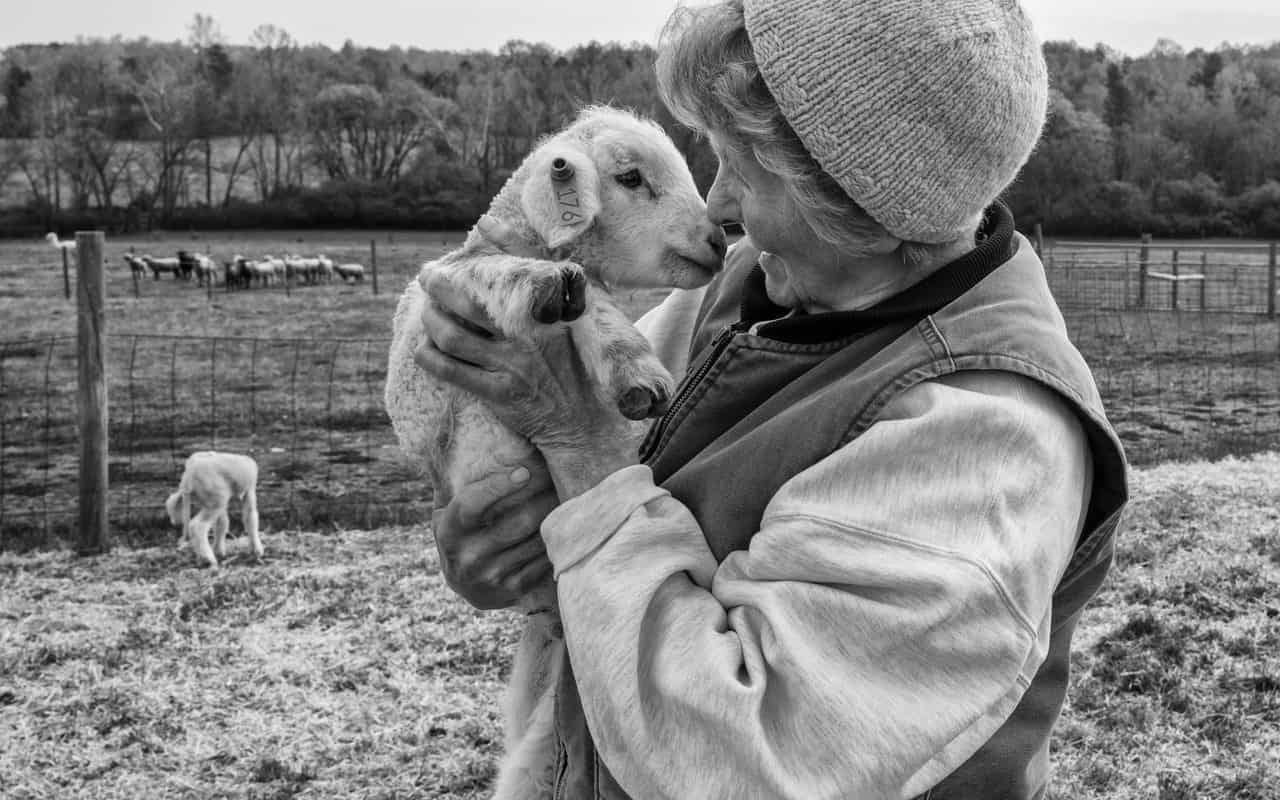
Being a shepherd is much different than being a sheep farmer. Ann quickly informs you, "what sets us apart is that we have a relationship with all our animals - we know them." And indeed they do!
-
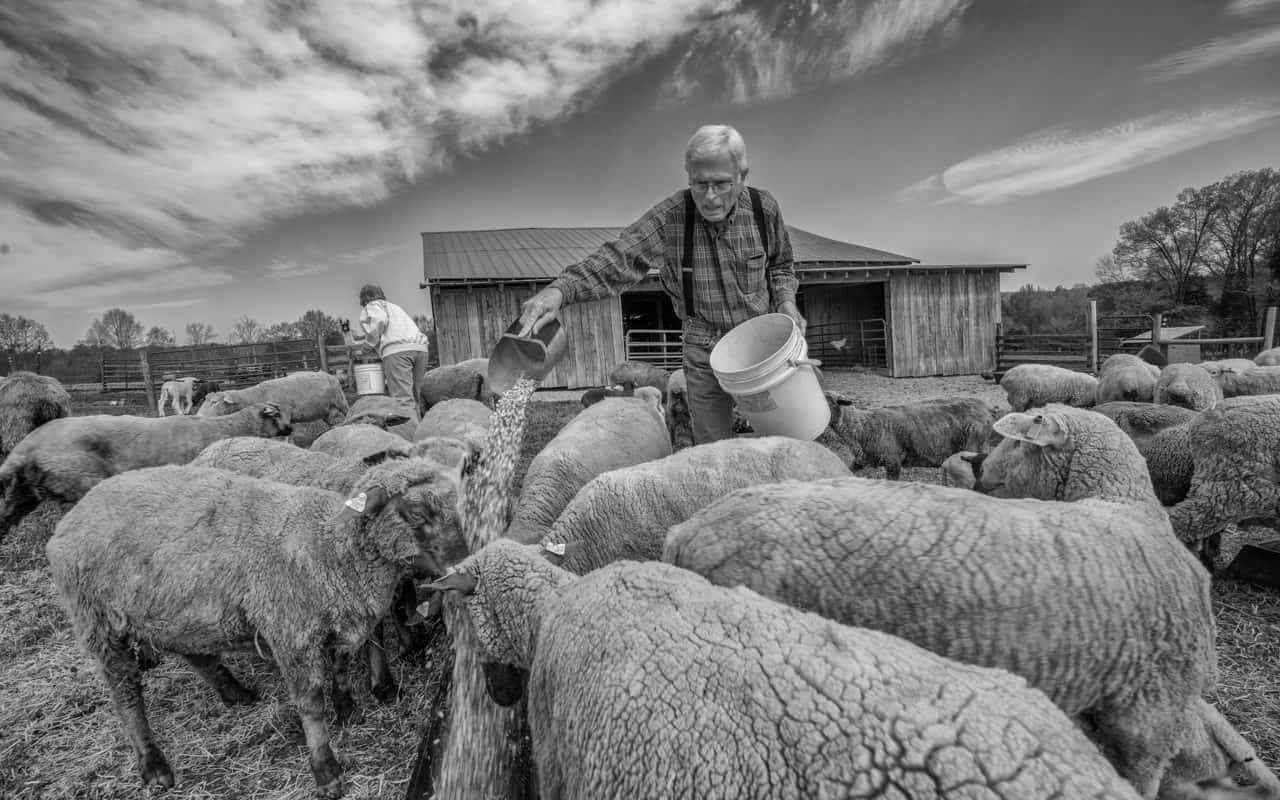
Early morning and late afternoon feedings are the matter of course.
-
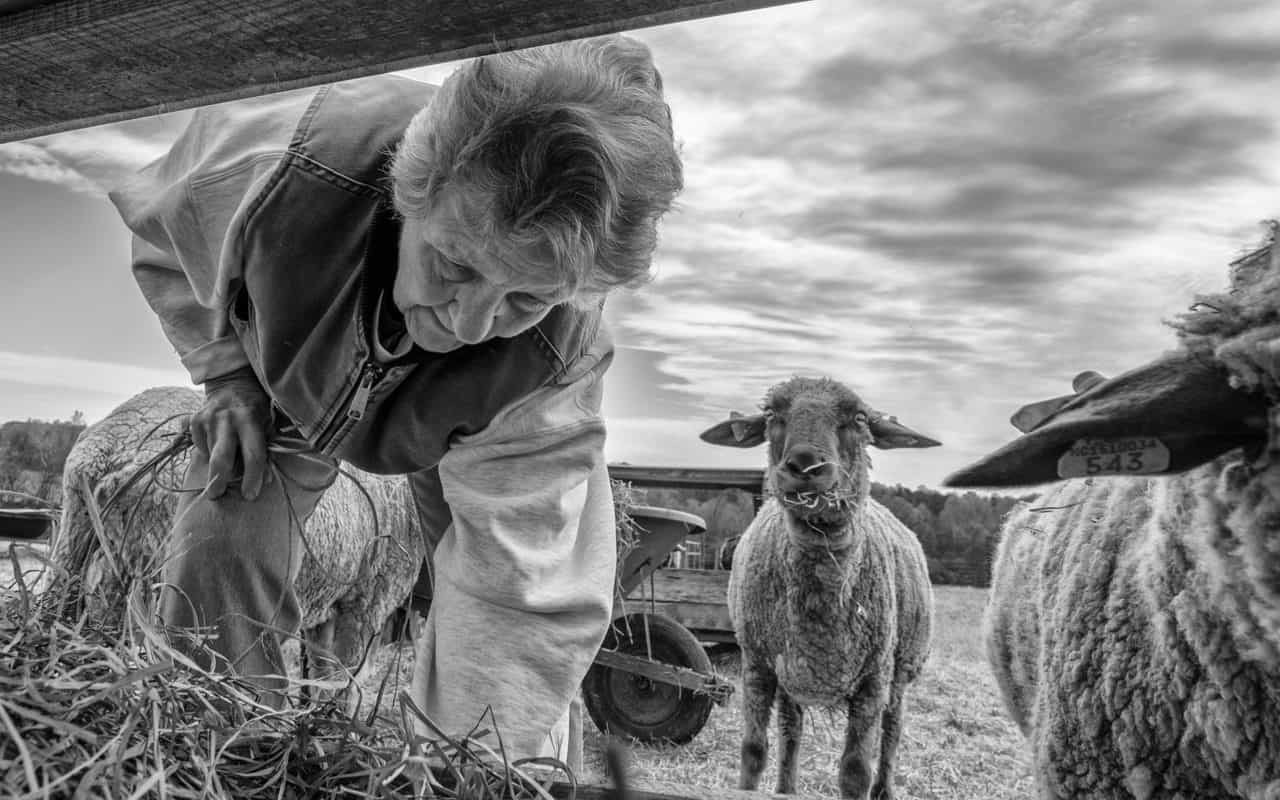
Ann's careful eye on 78 newborns insures that all the young lambs are treated equally and receive their fair share of the best hay and grain.
-
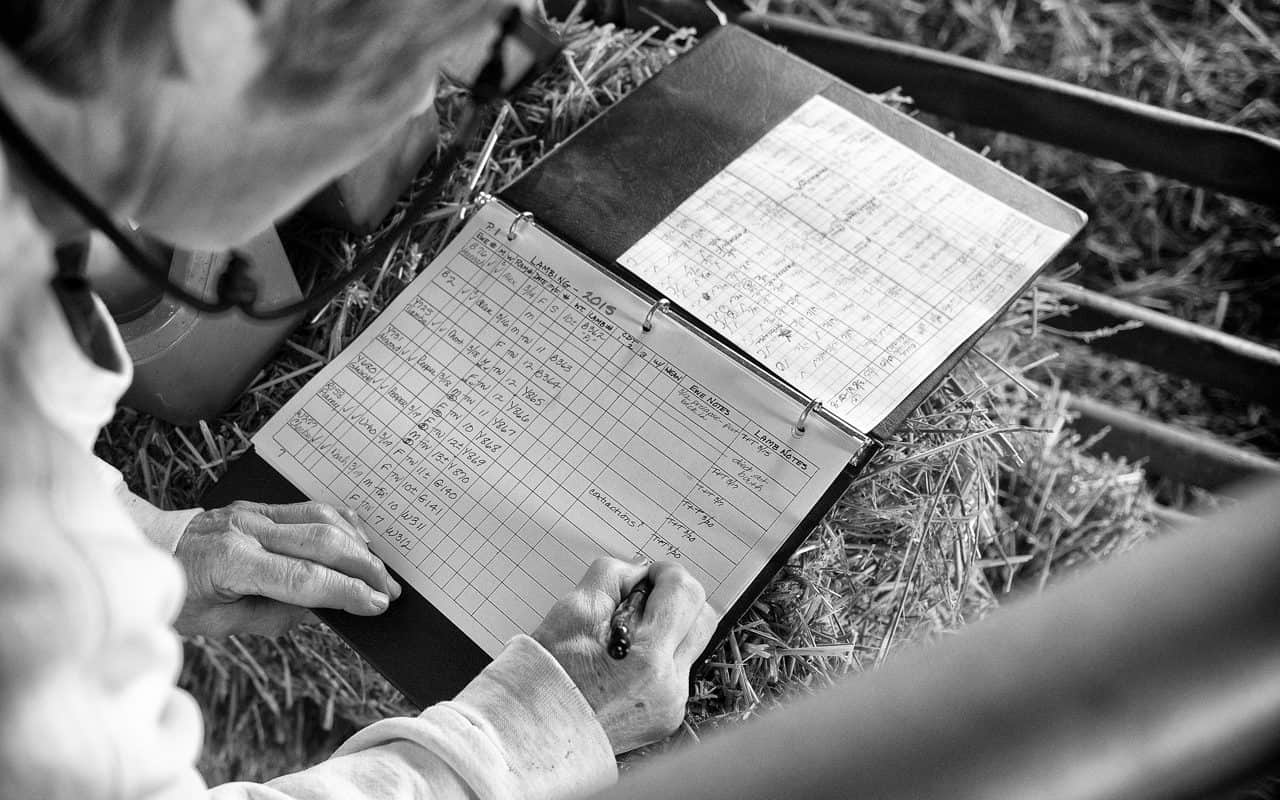
After feeding come all the maintenance duties like careful record keeping ...
-
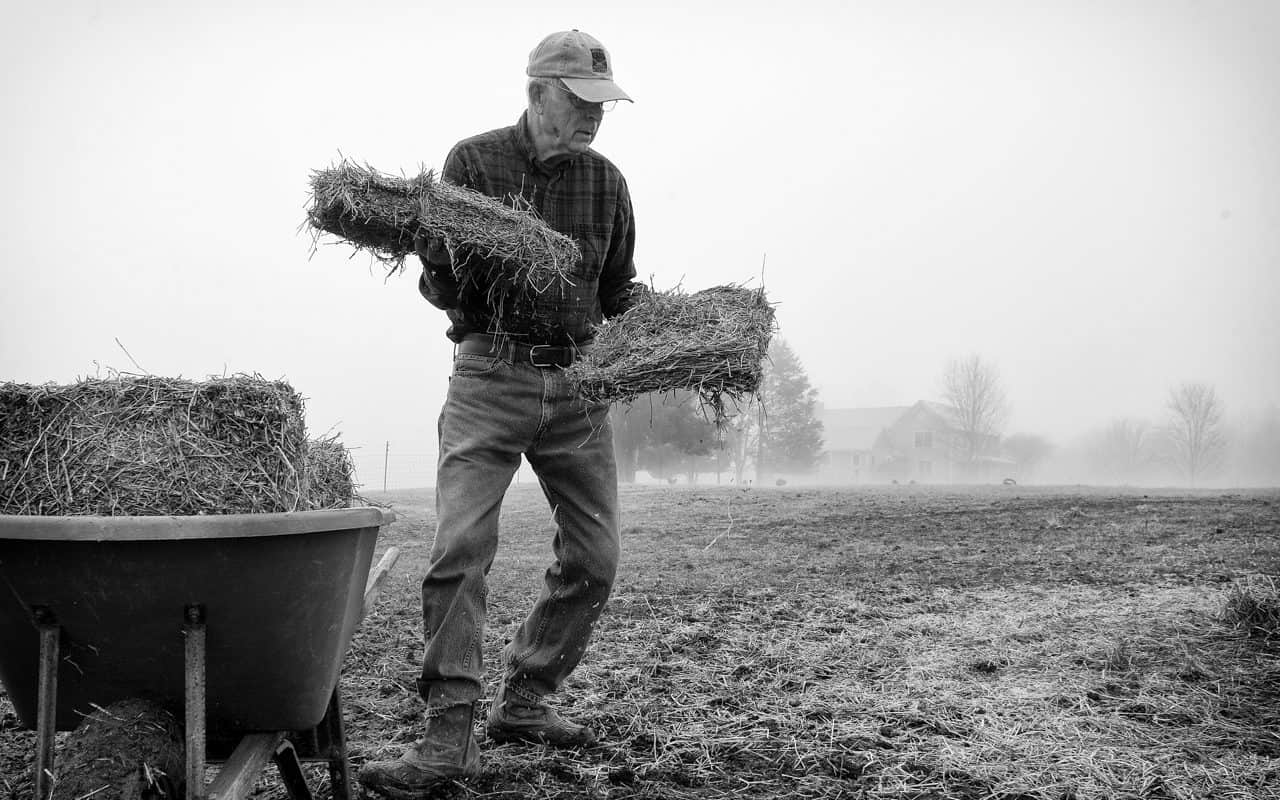
After feeding come all the maintenance duties like careful record keeping ...
-
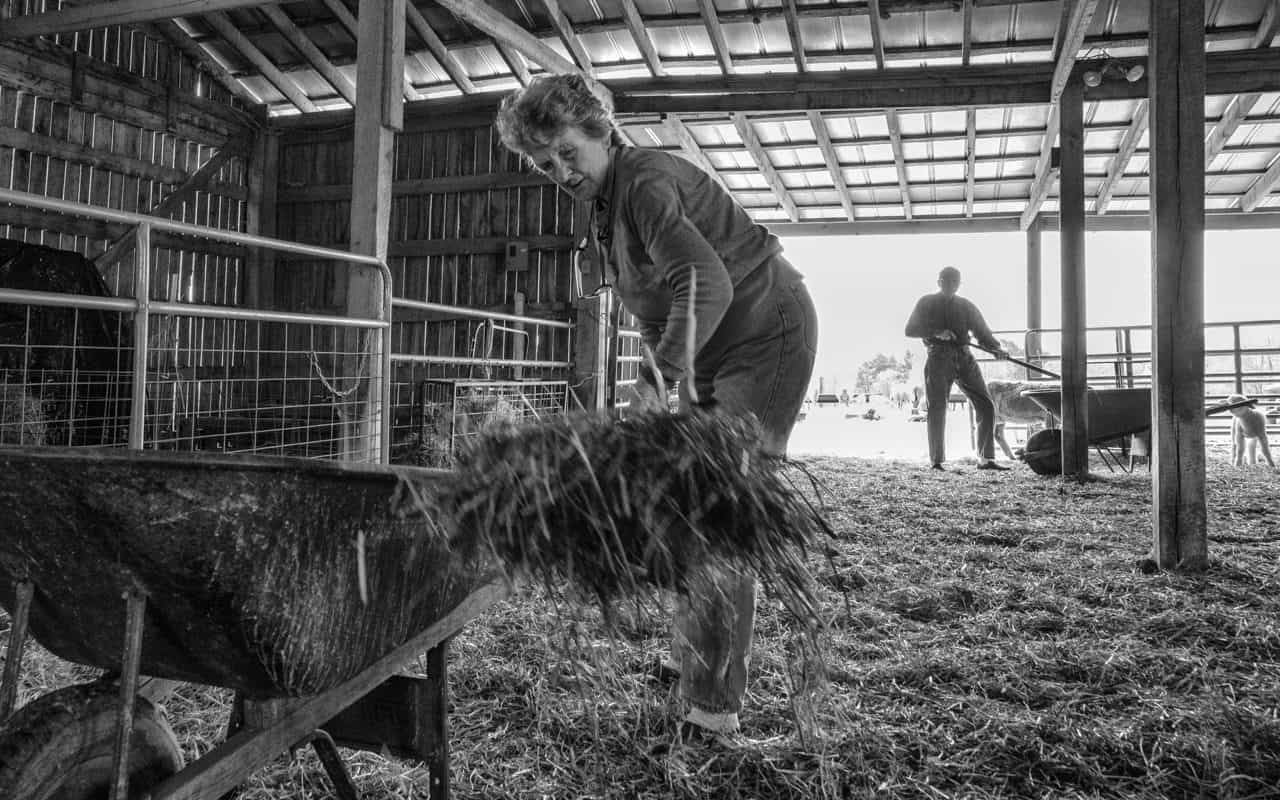
... collecting all the sheep manure to leave the barn a clean home for their lambs ...
-
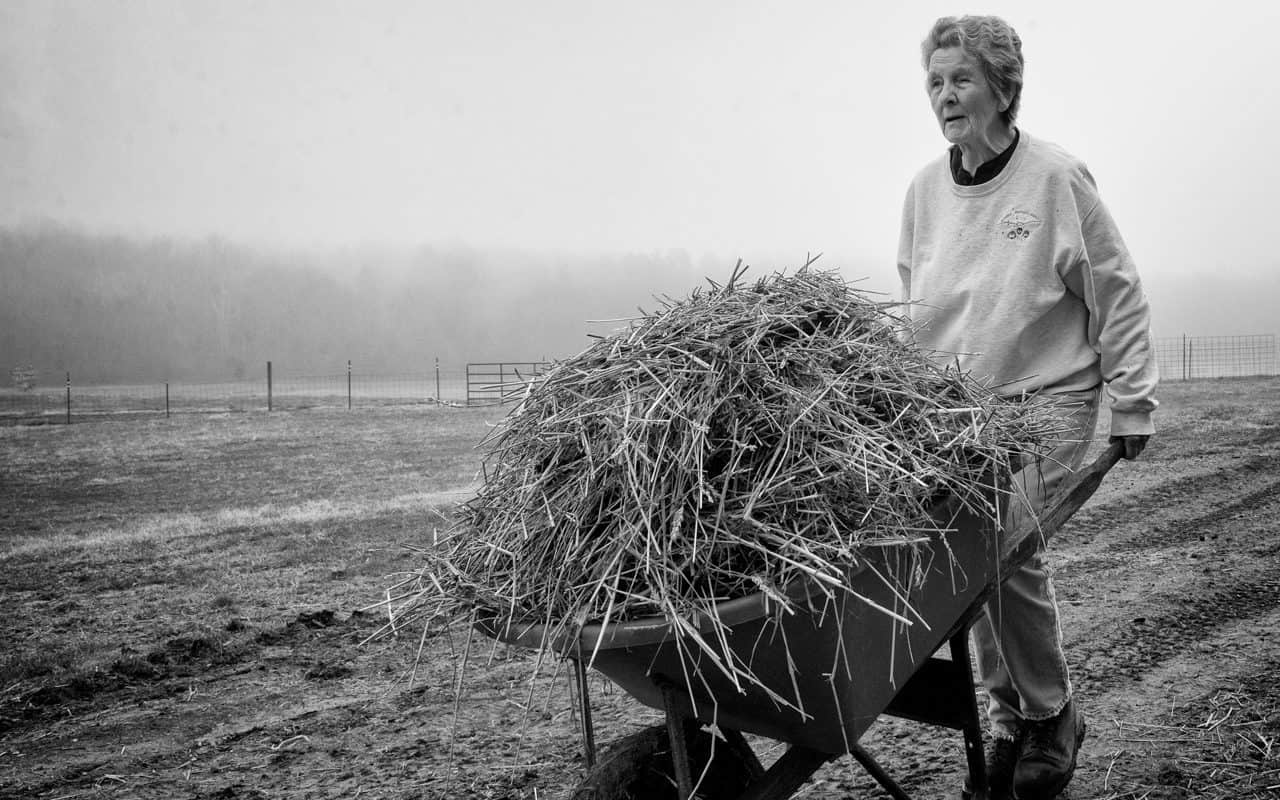
... and finally relegating all of this to the compost pile.
-
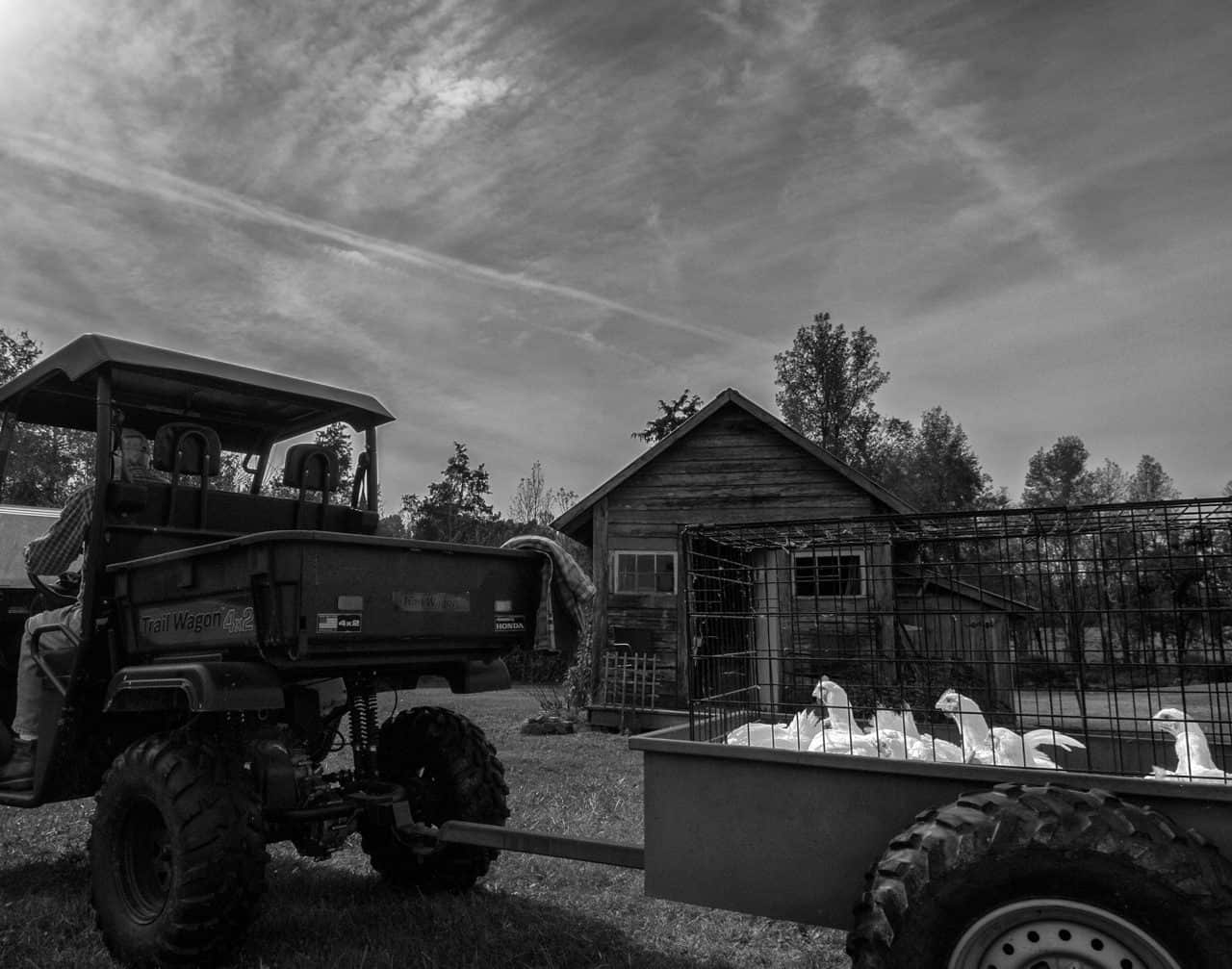
The farm has other seasons. A favorite is harvesting their ranged chickens.
-
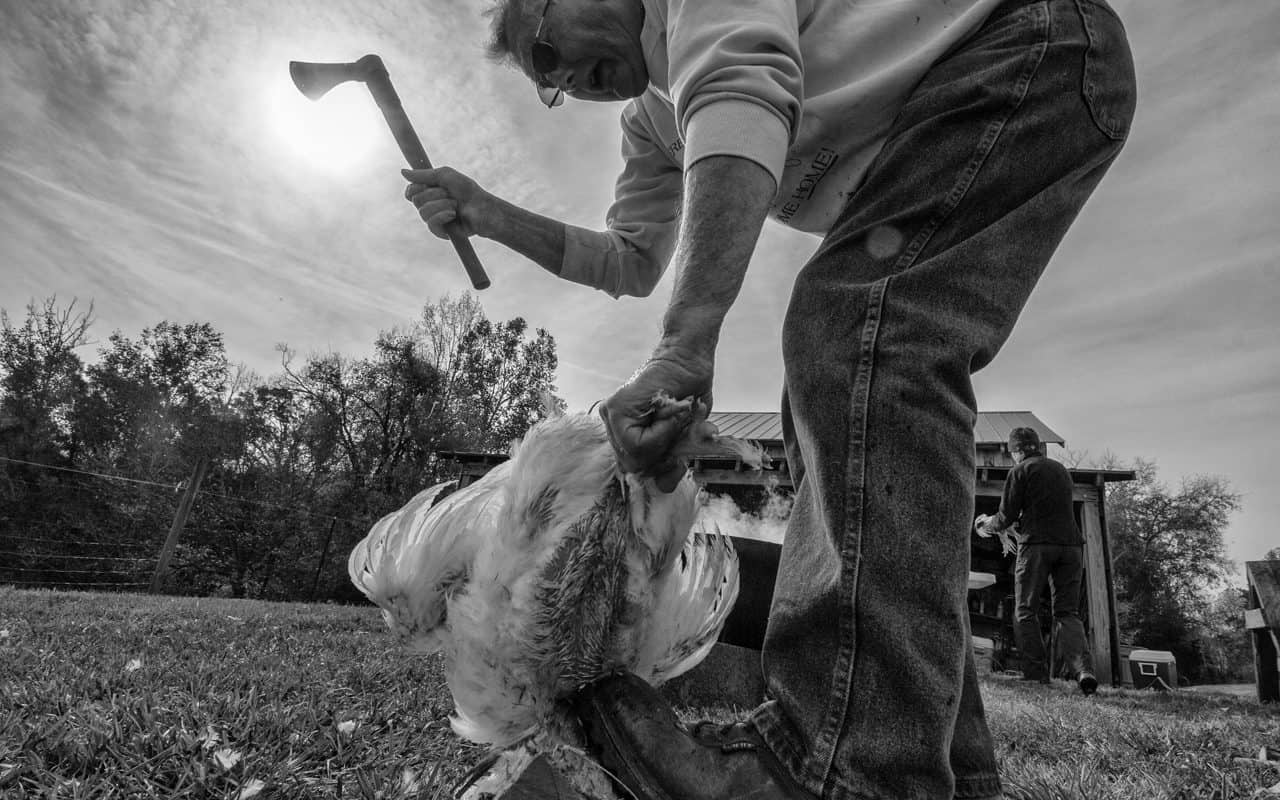
This is a time for community when neighbors and friends join in.
-
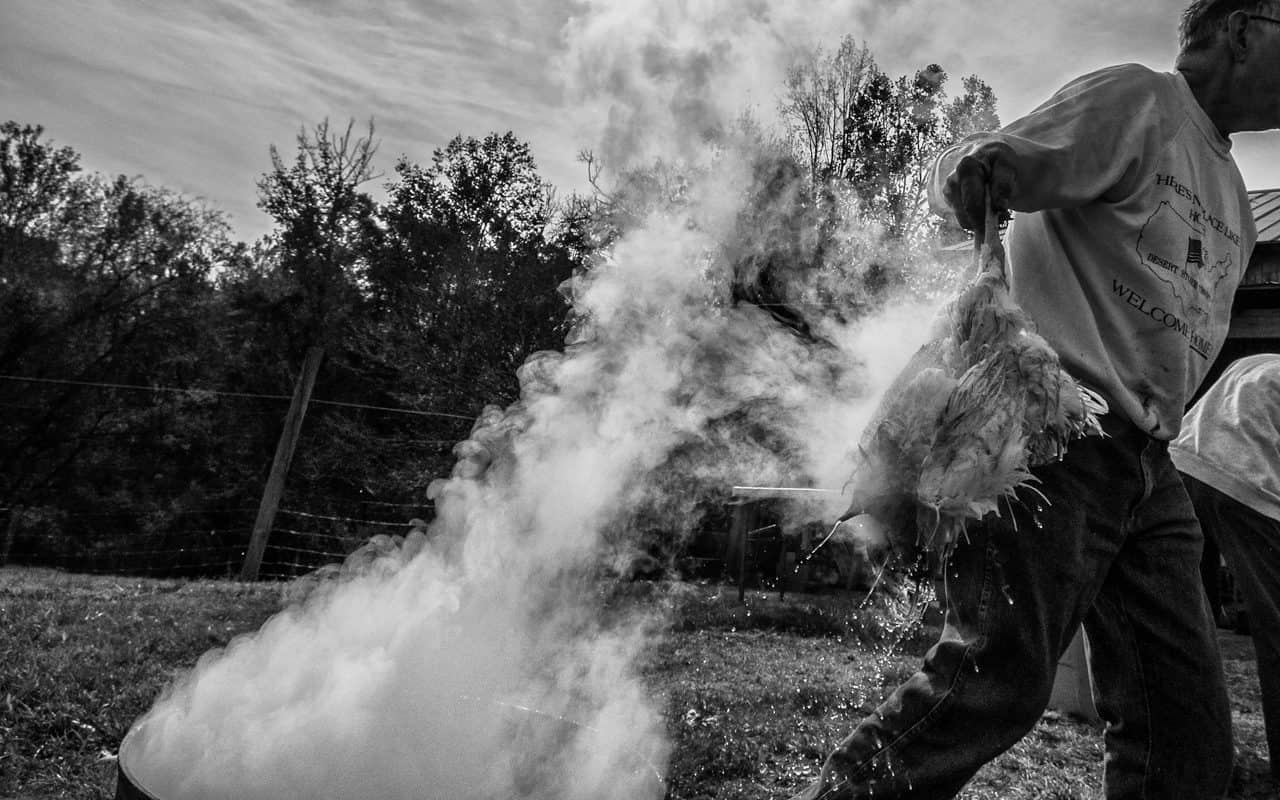
The men do the hot and bloody work.
-
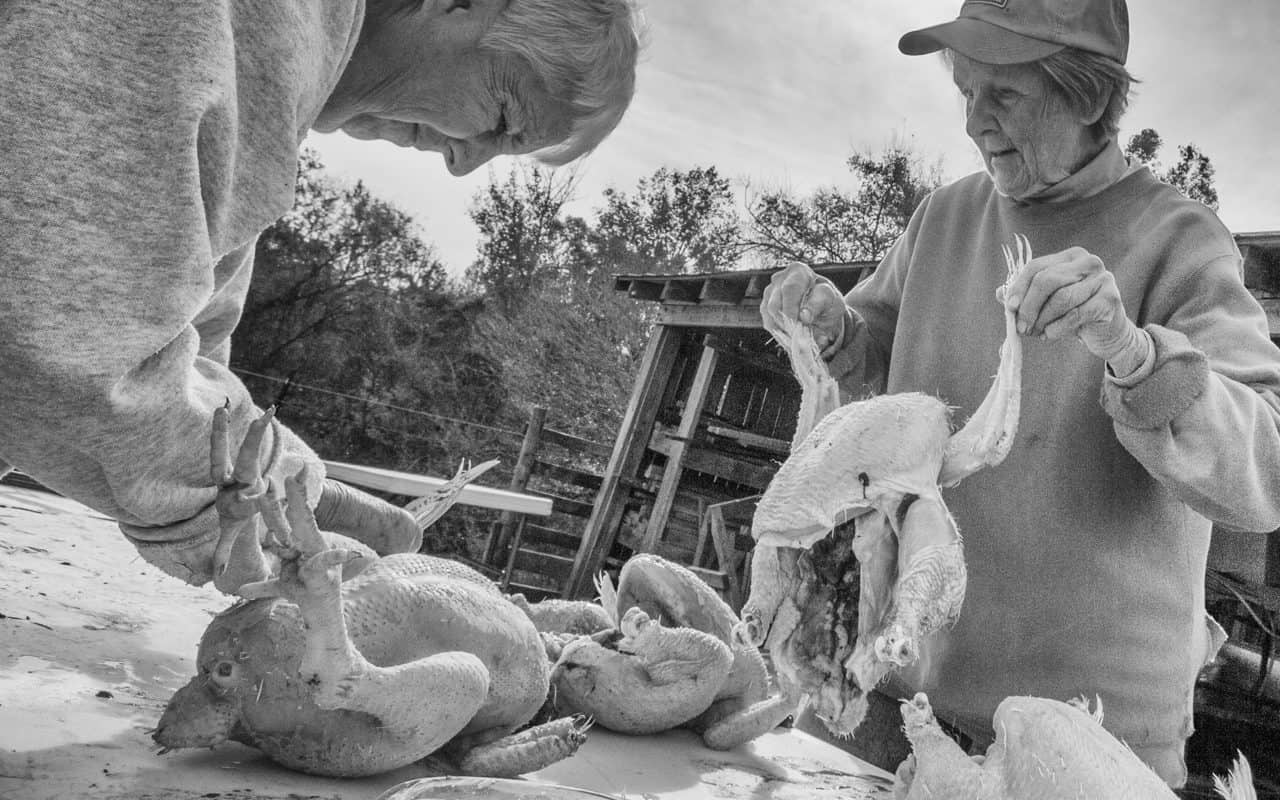
chicken
-
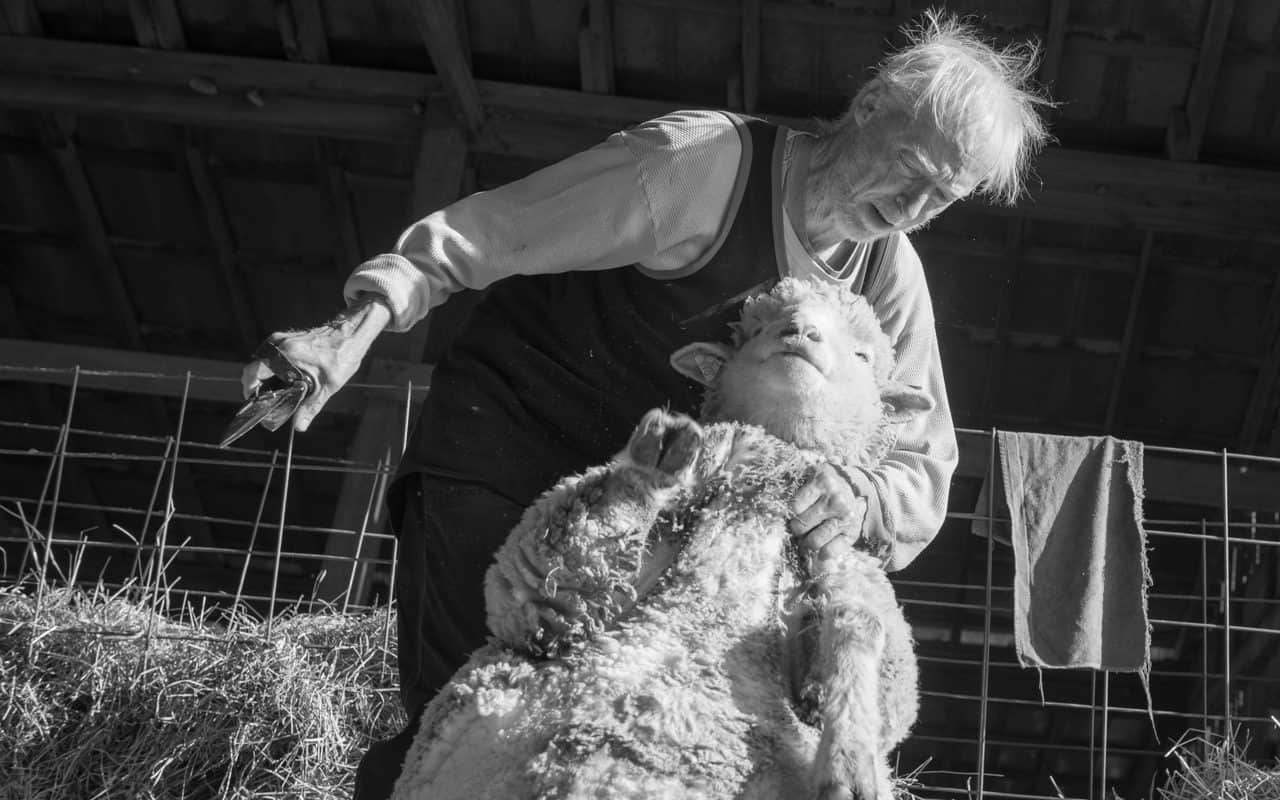
Another farm season is late spring when the ewes get their hair cut. This become a regional spectacle when Kevin Ford, the more than one time national hand shearing champion, relieves these sheep of their coats.
-
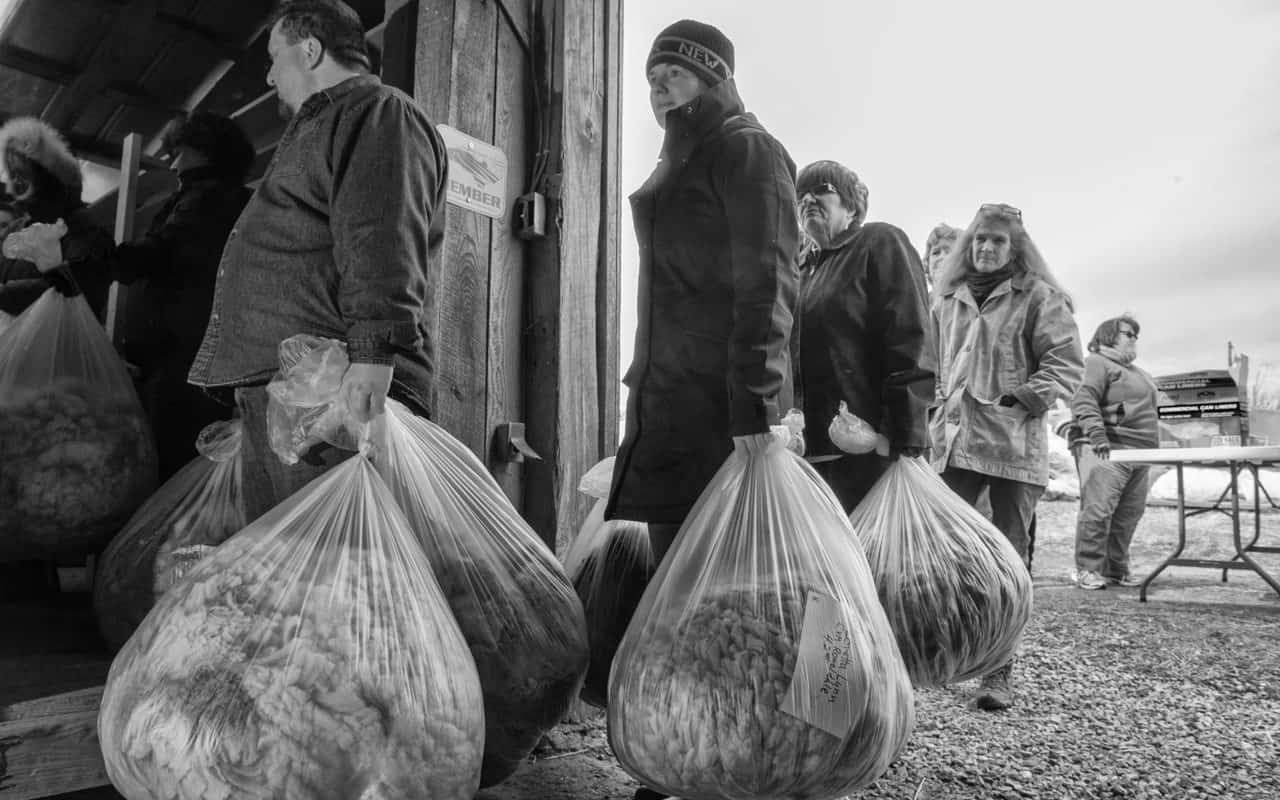
Weavers wait with bated breath to cash out on the fleeces that have been harvested that day.
-
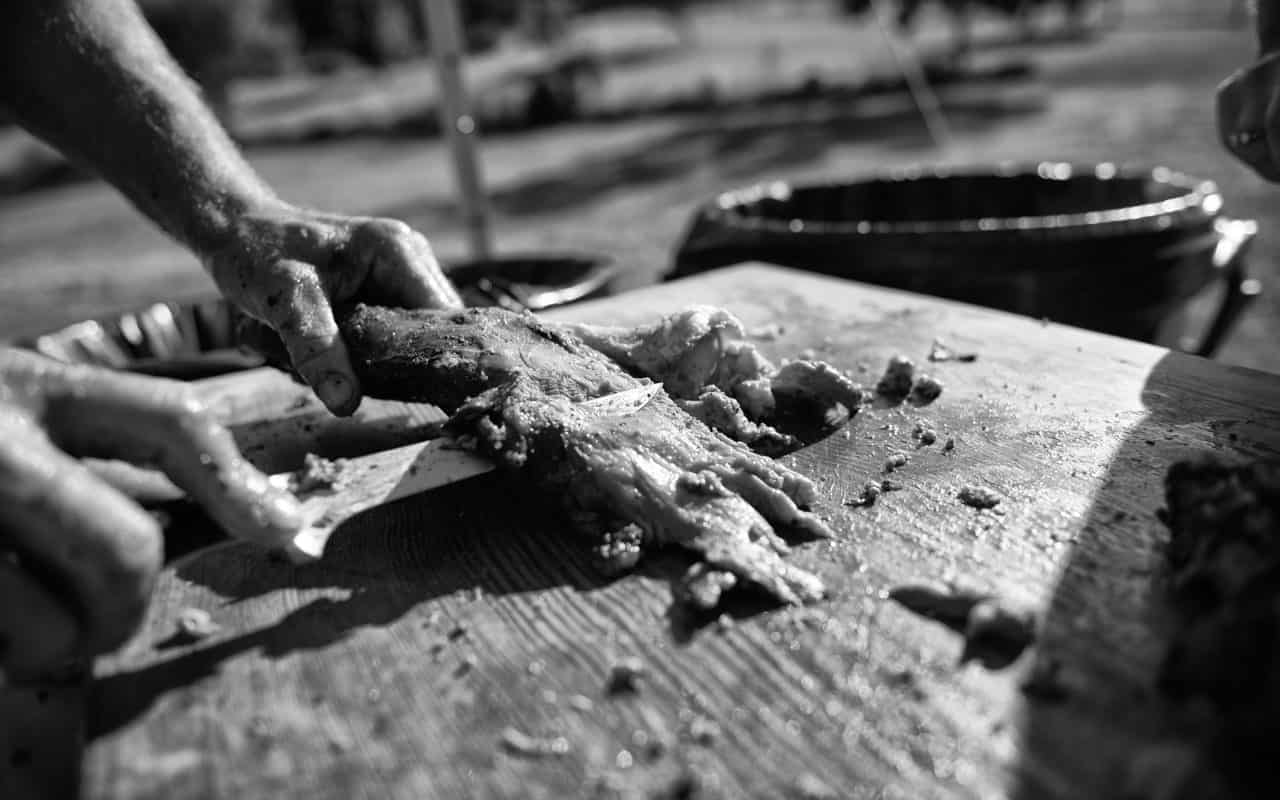
Then comes food and music with the signature entree being lamb ... fixed every way possible for those discerning palates.
-
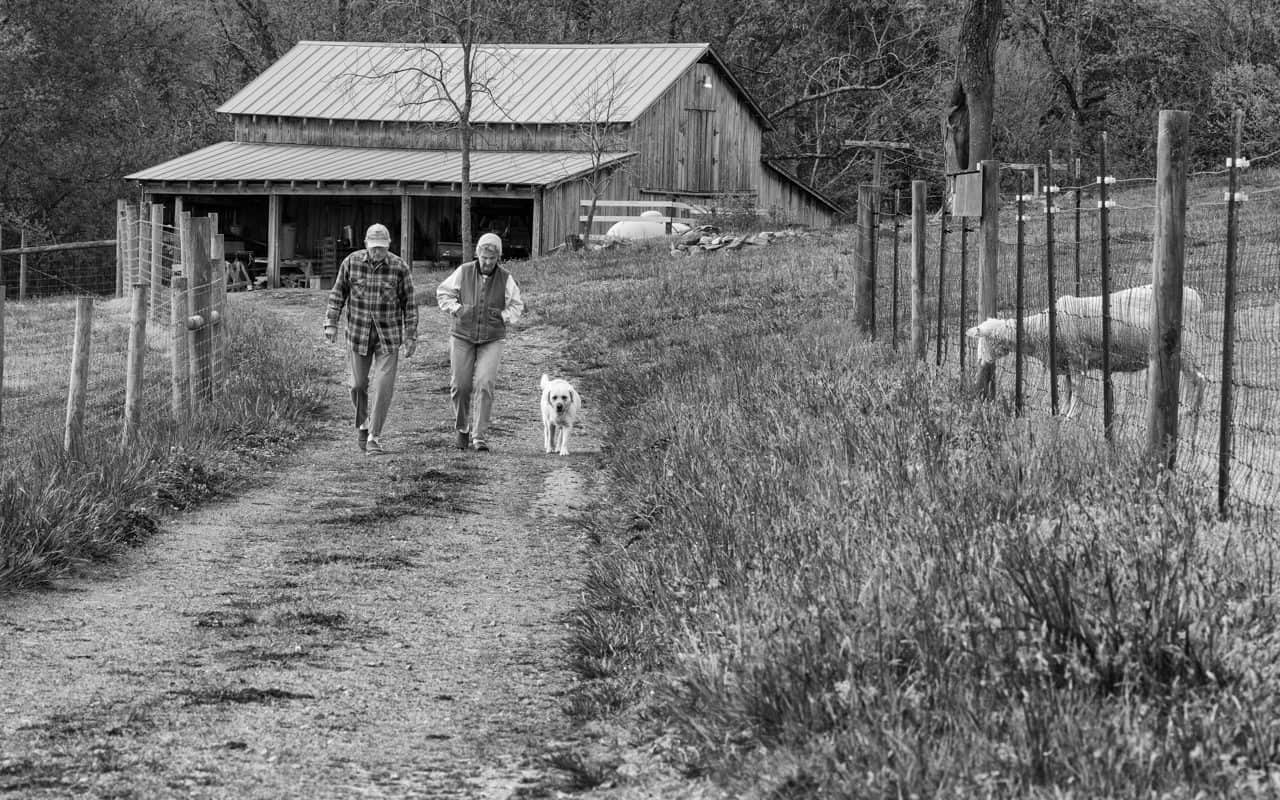
It is only mid-morning and the first part of the day is done.
-
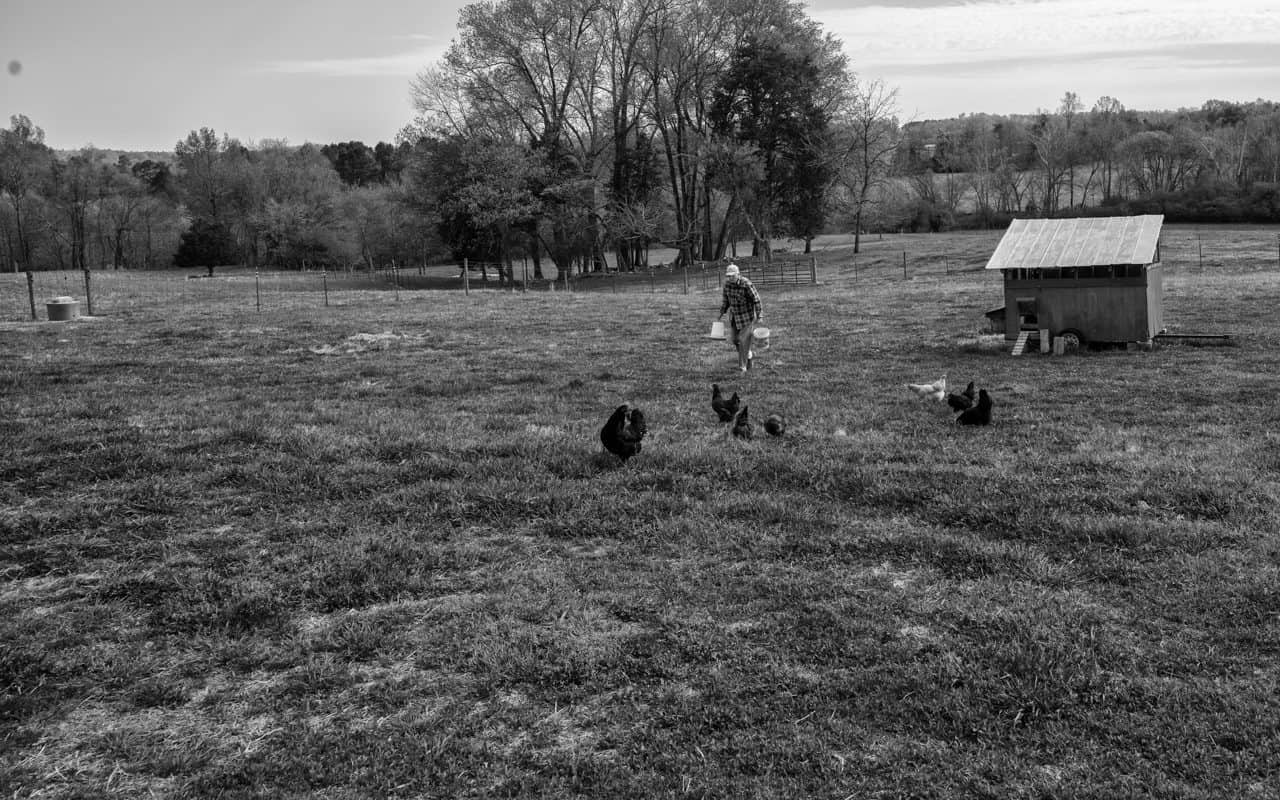
Ron stops by the chicken coop to collect eggs on the way back to the farmhouse.
-
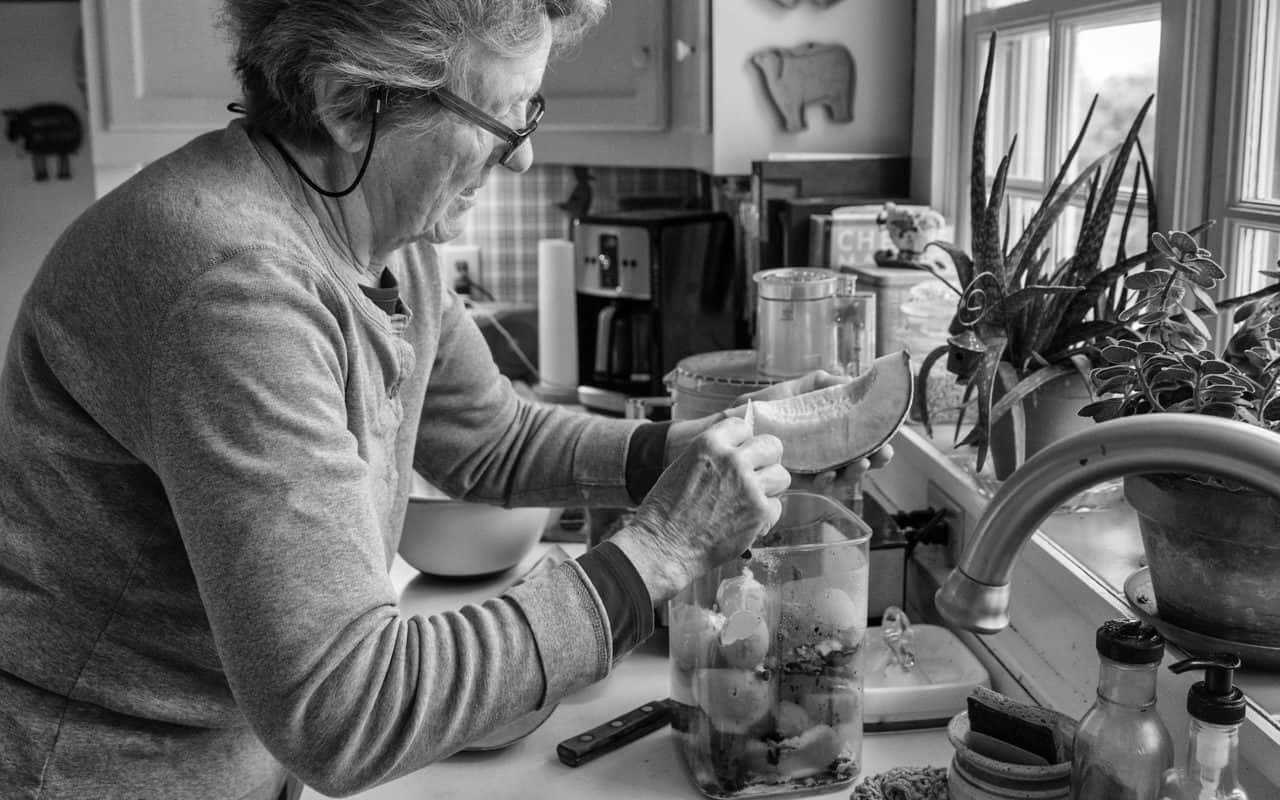
Ann prepares breakfast with the "best" and "most golden eggs that you will ever see."
-
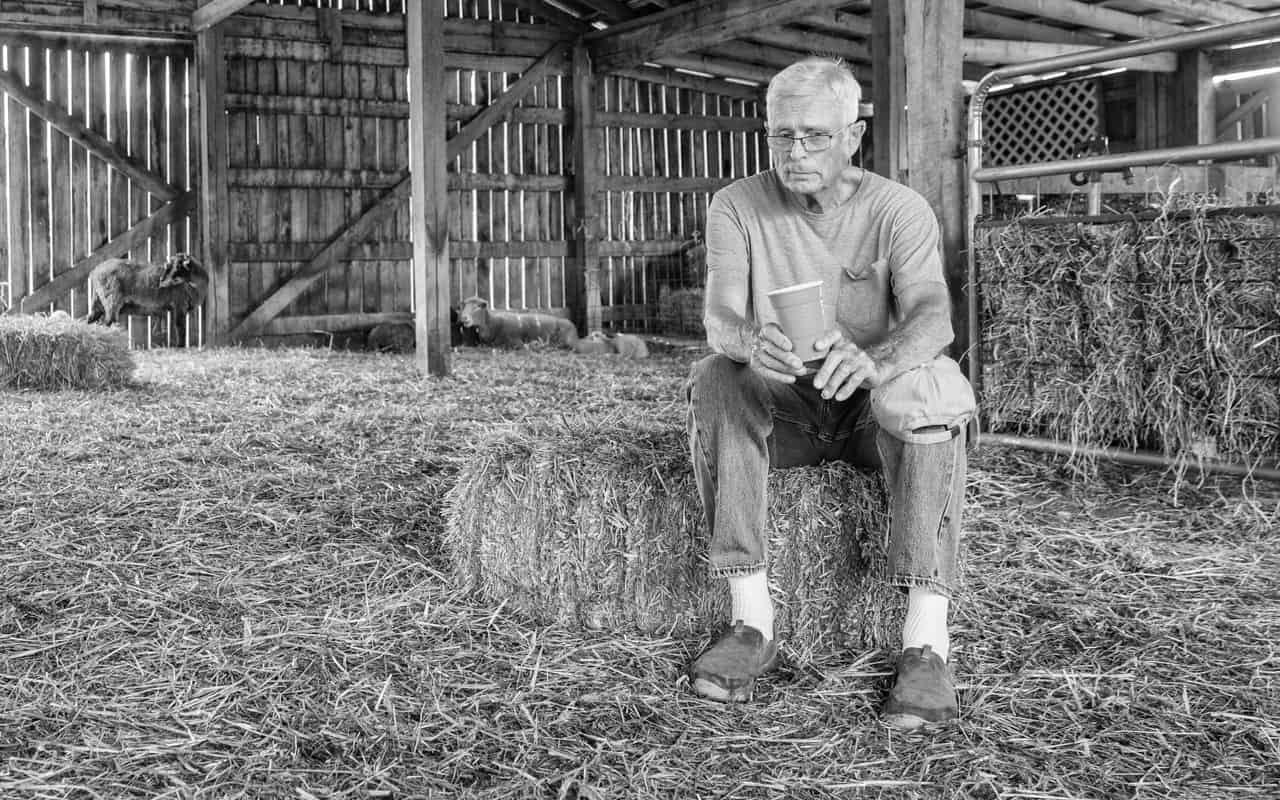
The morning routine gets repeated in the late afternoon; the physical toll on this septuagenarian is readily apparent.
-
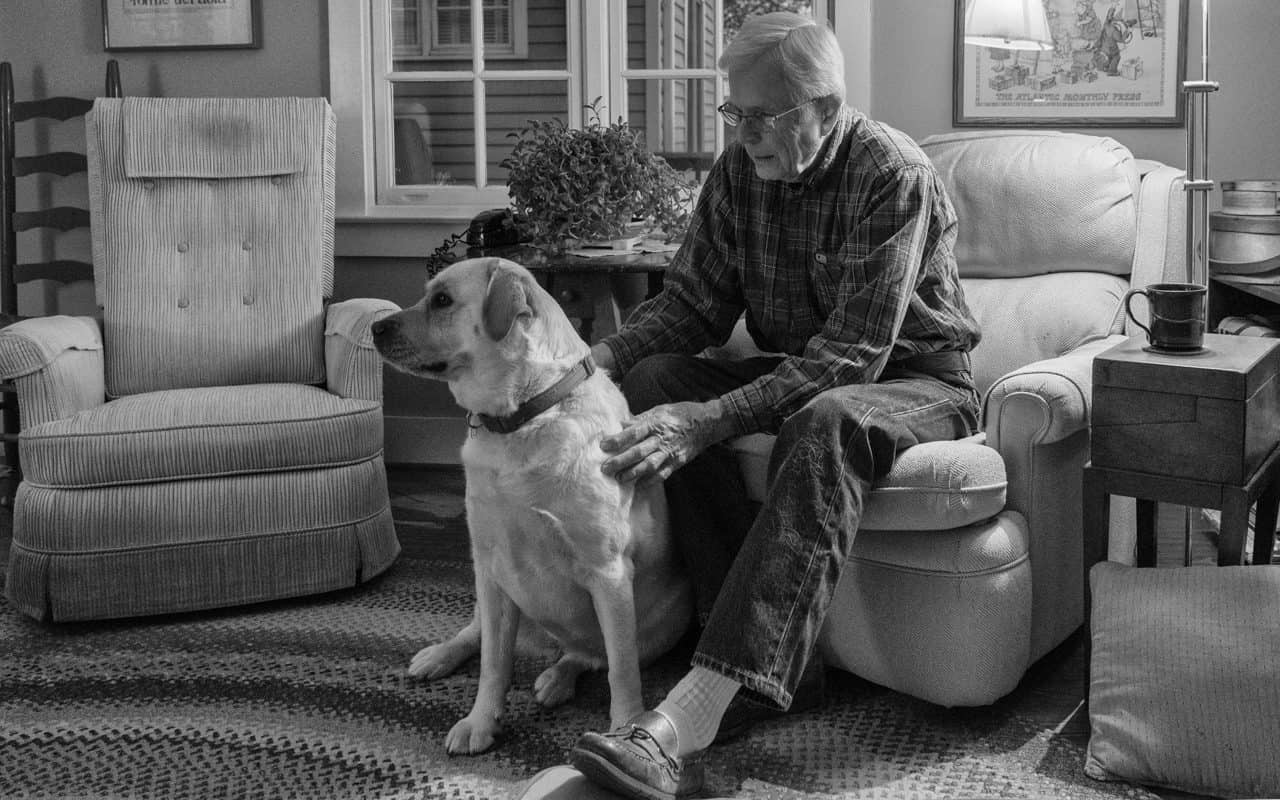
There is time after dinner to give close attention to Emma and the postponed affection that she deserves.
-
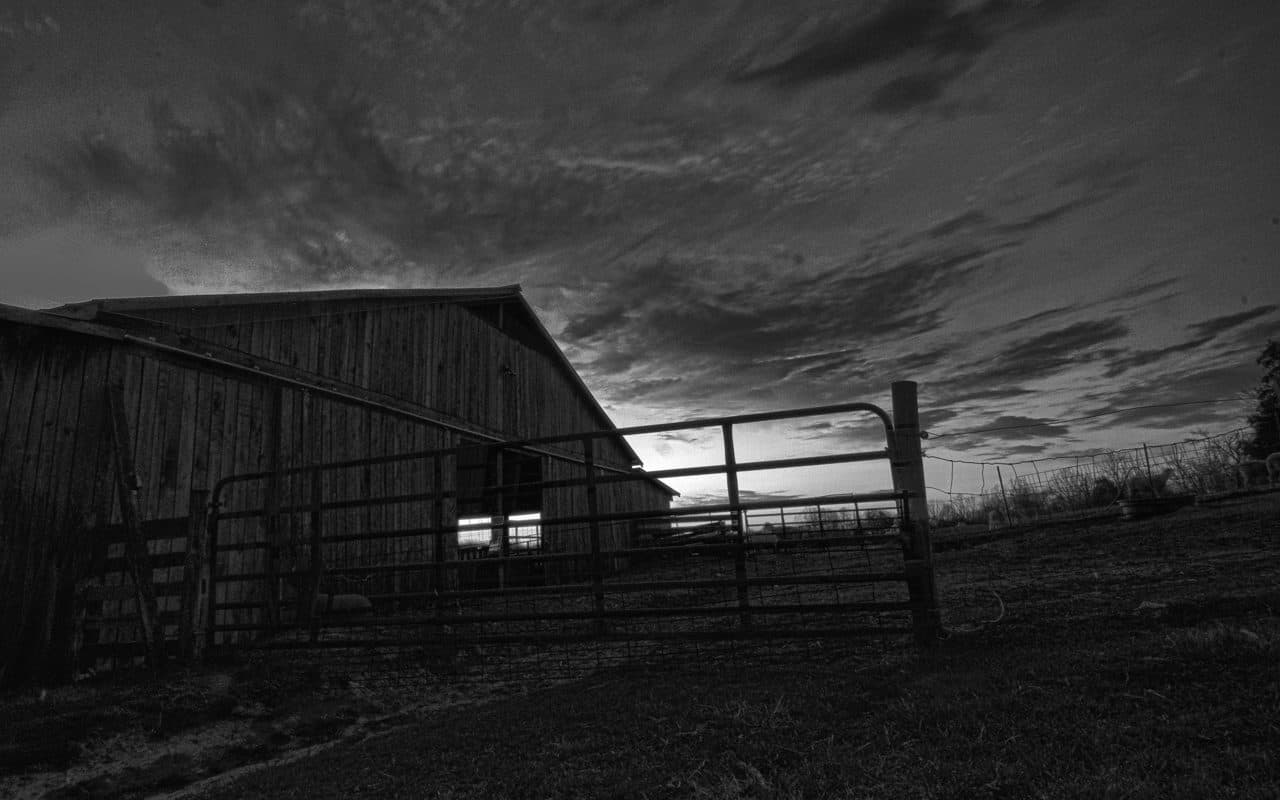
The sun sets; the lambs sleep; the sheep sleep; Ron and Ann sleep All of this rest prepares everyone for a new day at Rising Meadow Farm.
Not on Our Farm
This is a true story. It celebrates what is right with the world.
Ann and Ron Fay are septuagenarian shepherds living on a 128-acre farm in Piedmont North Carolina. They met as students at the University of Vermont and have been devoted to each other ever since. They independently grew up in traditional New England families, Ann in Massachusetts, Ron in Vermont. “Goodness” was practiced virtue.
In their professional lives, they were engaged in private education – Ron as headmaster and Ann in a supportive role in the school’s administration. Like so many others their age, they were steeped in the tradition of living the American dream – to own your own home.
Owning a home to them was accumulating acreage which with each change in venue, there would be additional buildings – perhaps a barn, a chicken house, or even original historic structures. Eventually, the farm defined their living landscape.
The farm setting provided an in situ for raising three children and a place to live out in real time their cherished childhood memories.
Please Share This
Share this content
























